

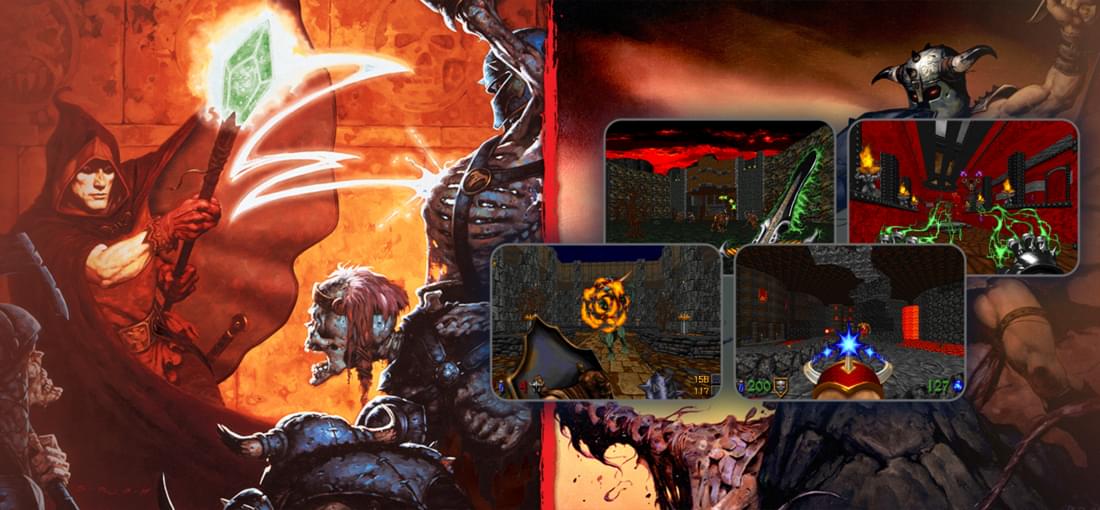
Overall score: 4.5/5 This would probably be more aptly described as an "enhanced edition," rather than a remaster. Apart from the new music (which is quite good), there aren't really any graphical changes. What they did do though, is provide some great optional enhancements. If enabled, enemies in Heretic have less health (making them less "spongy"), Hexen has map markers to show goals, and both games have reworked levels. This makes a BIG difference in making the games more enjoyable. Heretic is faster paced (with less chipping away endlessly at mobs) and Hexen is less confusing. So essentially the two biggest problems with both games have been fixed. Or you can have the original experience, if that's what you want. Not only that, but each game receives a high quality new episode. I have a few hours in each and they are both great. My only real complaint is that there are less options in the menu than typical Nightdive releases. There's no option for ambient occlusion for example, which previous classic shooter releases from them have had, and you also can't disable vertical autoaim. Your attacks will move themselves upwards and downwards to hit an enemy no matter where you are aiming, like in the originals. I suspect id Software/Bethesda might have prevented them from including some of these options. In any case, these are well worth purchasing if you are a fan of classic shooters and don't have them already. Contrary to what someone else wrote in their review, they also still come with the old DOS versions if that's what you want.
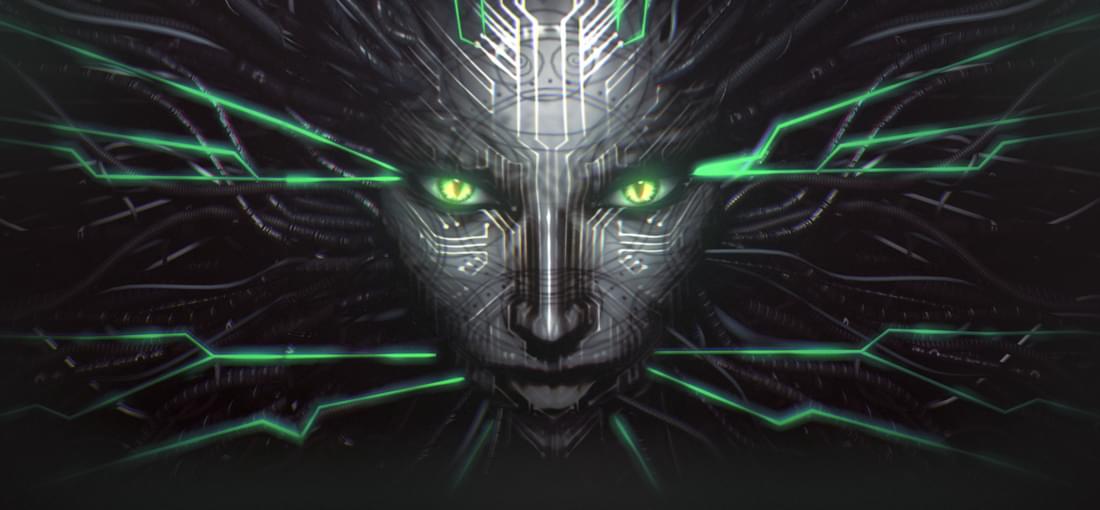
Game: 10/10, Remaster 7/10 This is one of my favorite games ever. It's not without flaws, but I still enjoy it so much I can't help but rate it 10/10. It's a vital piece of gaming history and you should play it. Since others have described the game well already, I'm going to focus on the remaster quality. In short, it's acceptable and does a good job of preserving the game for the future, but it could have gone a bit further in some ways (at least on release-- some things could be patched). Some of the pros that cannot be achieved with a modded version of the original are: remade cutscenes, new enemy models (there are enemy mods available but they are terrible), new engine features such as antialiasing, ambient occlusion and high frame rate (120fps+) support, working multiplayer, and scans of things like concept art, box art, manuals and guides. It's also probably more stable in general (I have had zero issues there), and it supports mods if you want to mod it further. However, it's missing a few things that I feel should have been included, such as: more granular audio settings (you can't change voice volume for example, only "sound" and "music"), the ability to adjust the UI scale (it's a bit tiny by default at 1440p), an FOV slider, and motion blur settings-- there appears to be some motion blur on camera movement to my eyes which cannot be disabled. It's not terrible looking or egregious, but the option should be there. I do wish the remaster was also more extensive in terms of visual changes, but I suppose it's understandable due to the budget (it's not going to be selling millions of copies or anything). Overall, this is a great way to play an all time classic without having to fuss around with installing mods on an old version, and includes several good features that you can't get otherwise.
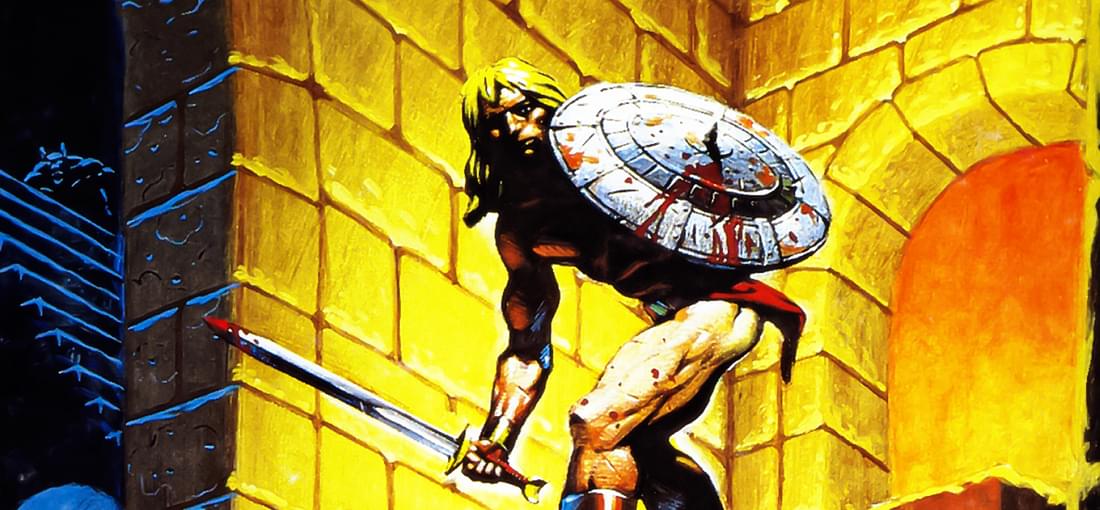
Two important things to know about these games: 1. The audio settings are messed up by default in this download. You'll have to search how to set it to use Soundblaster audio. Trust me, you don't want to play it with the default settings, unless they happened to have recently fixed it. 2. Controls can be greatly improved (adding mouselook + a context sensitive "use" key) by searching for "John Glassmyer Ultima Hacks." You'll need to rename the .gog file to .iso and extract the game files, then use the patcher on the Ultima Hacks page on the executable. As for Ultima Underworld itself: the game holds up amazingly well for a game from 1992. It's very atmospheric with some great interactivity and player freedom. It's a major milestone in RPG history and I strongly recommend it to fans of immersive sims and first person RPGs/dungeon crawlers. So many games have been inspired by this one that it's hard to really understate its impact. The Elder Scrolls series, for example, started off as an imitation of Ultima Underworld and still contains a lot of elements of it. You can see bits and pieces of it in tons of games. It also has a lot of impressive tech, like physics on objects and fully 3D levels, before Doom even came out. Why am I not giving it a full 5 stars? It has a few flaws, mainly some backtracking and obtuse puzzles. You'll almost certainly consult a walkthrough at some point. Also, most of the "side quests" are actually required, even if they don't seem to be important at first glance. The game gives you the ability to attack or insult all NPCs, but you can ruin the main quest by doing so, so it's not really as open ended as it may seem (this is a problem that was inherited from Ultima and its focus on "virtuous" play). Overall though, an absolute classic. I don't like the 2nd game as much as the first, but it's nice if you want more after finishing the first one.
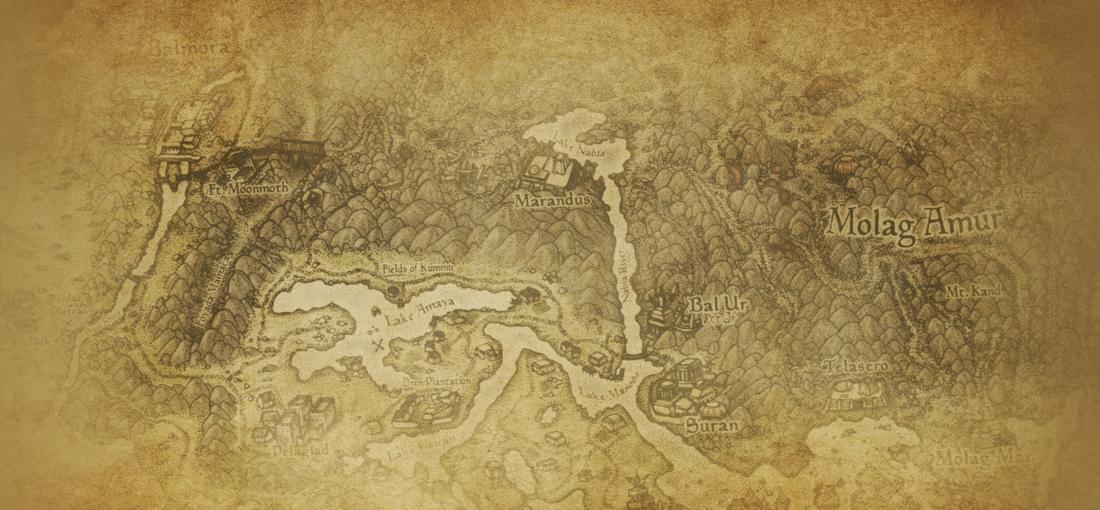
Morrowind is the 3rd game in the Elder Scrolls series, and features a large handcrafted world that was only rivaled in size by MMOs like Everquest on release (not counting procedurally generated games like Daggerfall). It's sort of a mix between Ultima 7, where you can pick up and interact with any item, and Ultima Underworld with its first person perspective, 3D world and real time combat. Morrowind's biggest strength is its setting. It takes place on the island of Vvardenfell, which is a uniquely strange place that combines influences from Middle Eastern, African, European and other cultures to create a mix that feels alien. You'll travel from swamplands to volcanic regions to mushroom forests and archipelagoes in the sea, while also diving into caves, Steampunk themed ruins and shrines to various gods. It's very fun to explore. It's also probably one of the most open-ended RPGs ever made, at least in terms of big budget games. From the very beginning, you can teleport all over the island for very little money, and nothing is blocked off from access. You can create your own spells, your own enchantments and build out your character any way you like. The game does have some problems, however. The default movement speed is glacial and makes getting around the large world tedious, so you'll want to boost your Speed stat early. It's also not very well balanced, and you'll find that you inevitably become an overpowered god, even with the difficulty maxed out. Combat is super basic and relies on dice rolls to determine if you hit your enemy, which may put some people off of the game. NPCs can also be a bit generic and will sometimes speak more like an encyclopedia than a person. Overall, the game is a classic of the genre that any fan of open world RPGs should try. I strongly recommend using OpenMW (search for it) to make it run well on modern systems. It's also heavily moddable to bring graphics up to modern standards or change how it plays, if you like.
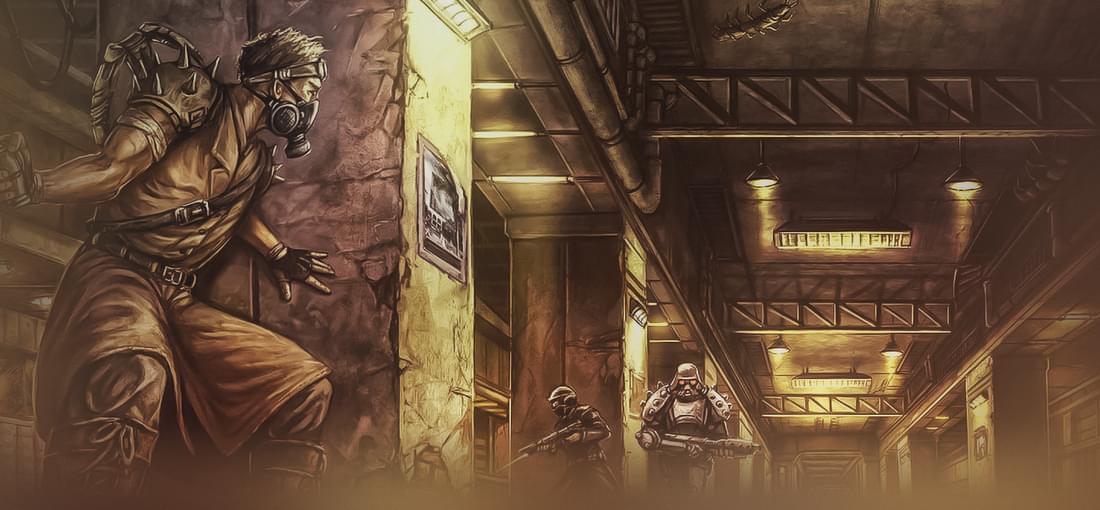
If the idea of a solo journey through a dangerous, post-apocalyptic underground world full of mutants, junkies, scavengers and beasts appeals to you, then I strongly recommend checking out this game. It's one of the best I have ever played. Before going further, I'd like to address the difficulty of the game, which has been controversial. Yes, the game is challenging, but it's not unreasonable, and it gives you plenty of ways to gain advantages in combat (such as Adrenaline vials). I would liken it to Dark Souls: it asks you to pay attention and think a little bit, but is otherwise absolutely doable by normal human beings. Every time I ran into a tough situation, I was able to get past it through clever use of items and mechanics. If you don't read item descriptions, don't look at what shops have for sale, don't try new things, ignore crafting and don't think about your build choices, then naturally you will have a bad time. This is what most people leaving negative reviews are doing. There is even an Easy difficulty setting that doubles your health, so I find it bizarre that people still complain about it. With that out of the way, the actual content of the game is very high quality. It's also massive, and took me roughly 150 hours to complete with the DLC. The setting is bleak, with people struggling to survive in various small settlements, plus one large city where factions compete for power. It resembles classic CRPGs from the 90s/00's but with a modernized UI, and to me feels like a labor of love, made for genre fans instead of chasing sales and mass market appeal. My only real criticism of the game is that it offers no respecs for your character. If you want to change your build, you have to start a new game. I think a limited number of respecs, even 1 or 2, would have made the game more accessible and new-player friendly. That said, I loved every minute of the game and cannot recommend it enough to CRPG fans, particularly if you enjoyed Fallout.
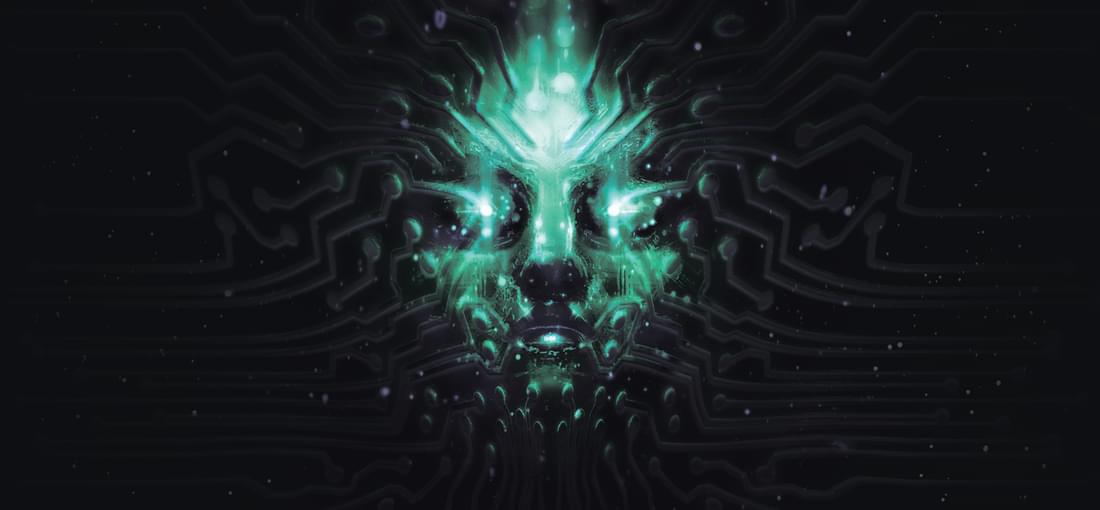
This is an atmospheric and visually arresting remake of a highly influential classic, which leaves the core gameplay largely unchanged. For fans of immersive sims it's a no-brainer, but those accustomed to modern gaming may be in for a different kind of "shock." The remake focuses mainly on updating the most dated aspects of the original, namely the graphics, audio, interface and controls. The game has a unique cyberpunk horror aesthetic which is both colorful and dark, combined with a graphical style that looks simultaneously high resolution and pixelated. The upbeat 90s soundtrack is replaced with a cerebral and creepy score similar to Prey in some respects, with a touch of industrial and metal during combat. The end result is fantastic, and I really could not get enough of the atmosphere it creates. Gameplay wise, I would describe their approach as very conservative. They have brought in a few elements from System Shock 2, namely a grid-based inventory and currency that you can spend at vending machines. But in terms of level layout, puzzles and direction, this is essentially the same 1994 game, for better or worse. This means that the levels are often similar to Doom levels, being somewhat abstract and maze-like. They've touched up some things here and there, but the core layout is the same, to the point that guides for the original game also work with the remake. You'll have to learn the ins and outs of each floor to be successful. This approach also means that there is no list of objectives like modern games would have. You'll have to pay close attention to your surroundings to find and listen to audio logs to give you hints at what to do next. If you miss something, you'll probably end up having to do some backtracking. I think this is unfortunate as it will turn away some modern gamers who don't have the patience for that sort of thing. If you can deal with this old-school approach however, chances are you will highly enjoy this remake, as I did.
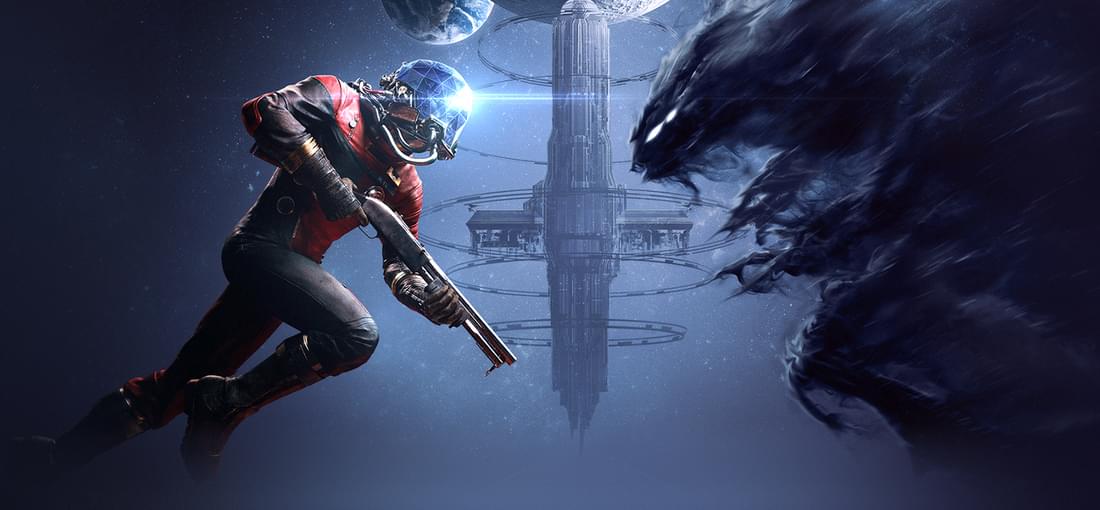
This game is the rarest of creatures, a high budget immersive sim that refines the formula of past classics such as System Shock 2 without dumbing it down to appeal to a mass audience. It's essentially System Shock 3, and any fan of the genre should play it without hesitation. Like System Shock, it takes place on a space station where things have gone horribly wrong. The interior and exterior, both fully explorable, are modeled beautifully with modern high resolution graphics and level design. It encourages creative exploration by giving the player a "glue gun" which can be used to create your own walkways along any surface, allowing you to reach areas of interest that you might see while exploring, or to sneak past tough encounters. Combat is fast paced and challenging, at least for the majority of the game. Weapons each have strengths and weaknesses--- there's no rocket launcher to blow everything up with or sniper rifle to kill everything from a mile away. You'll have to think about what is best for each situation. Cleverly, all loot in the game is valuable as it can be recycled into crafting materials and then turned into a variety of useful items, including upgrade points. Characters can be built in a variety of different ways to focus on combat, fitness, psychic abilities or skills like hacking and repair. There game has a waypoint system that directs you where to go, but it's not obnoxious and can be disabled if you prefer. In many cases, the game will provide you with bits of information that you can use to create your own goals, rather than telling you what to do. For example, you might read an email that mentions someone, then use the nearest security station to locate that person and then rescue them or obtain their loot. There is a lot more I could talk about, including the story which is interesting and contains some good twists. But since I'm running out of room, I'll just say it's a 10/10 immersive sim, absolutely one of the best ever made.

Shadows flicker randomly and half the time I try to load a saved game, the frame rate drops by 50% or more and I have to restart the whole game to fix it. Raytracing effects have an insanely heavy effect on performance, but I wouldn't mind quite as much if I could actually play the game.
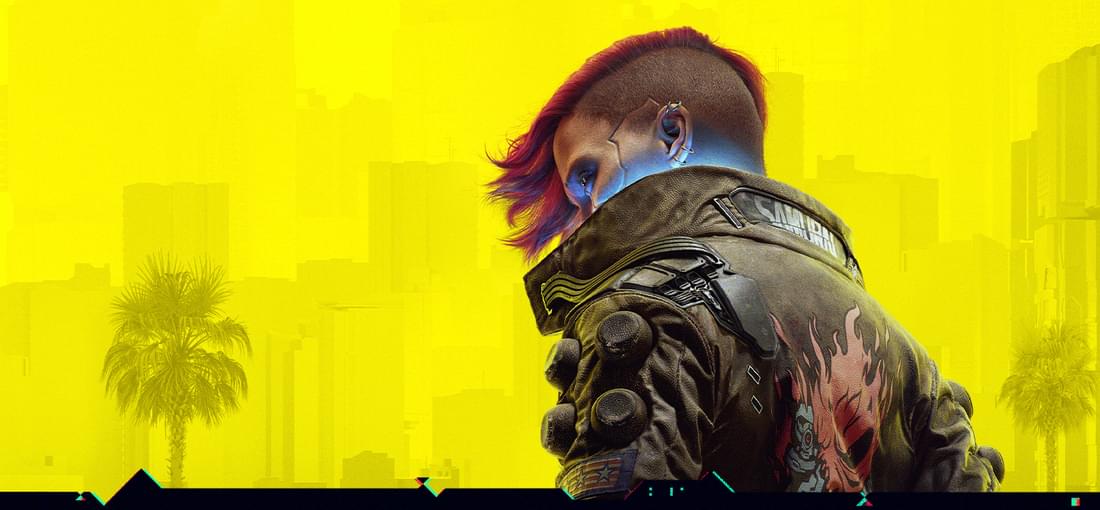
Cyberpunk 2077 in its current state is a good game. I did not play it prior to the 1.52 version. The presentation is probably it's strongest aspect. The graphics are great, and the city is detailed in a way that surpasses other open world games. Cutscenes are well done and animated, and characters look good. The gameplay itself is solid too. Shooting feels decent, and is about on par with something like Fallout 4. The talent trees give you a good amount of options for building your character. I played it in a mostly straightforward shooter style though, and enjoyed it. The writing is OK. Sometimes you can affect the outcome of side quests somewhat, but there's typically no long term consequence. In terms of the choices you get, it doesn't really compare to a traditional RPG. The driving aspect of the game is mixed. I only found a couple cars that didn't feel awful to drive, but the motorcycles were much better. As far as the open world goes, there isn't really too much to do outside of the quests that are given to you via phone. Don't expect to be able to roam around and find a random quest or person to talk to, which only happened to me a couple times through the whole game. There is a decent amount of content via phone calls, but it was still kinda disappointing. I will say that the vertical design of the city is pretty cool, and after I got a specific traversal upgrade, I had quite a bit of fun climbing from rooftop to rooftop throughout it. There is typically something you can reach or run across to get to where you want to go, although I'm not sure if it was done that way on purpose. Overall, I enjoyed the game. I didn't experience any major bugs and I had 48 hours played when I beat it, having done most side quests. It's a bit like someone crammed Grand Theft Auto into a Deus Ex/Fallout style game, but kept the GTA mission structure.

If you play games mostly for the characters, dialogue and story, Arx Fatalis is probably not for you. But if you enjoy games with an immersive atmosphere and freedom of choice, you may be able to look past the flaws and find a great game underneath. The game is an immersive sim/RPG hybrid with an impressive variety of ways you can interact with the world. You can attempt to "use" any item on any other item or object in the world, and the game rewards you for being creative. I was often impressed by how well the game responded the ideas I came up with to deal with various situations. The environments are beautiful and are a highlight of the game. The city of Arx in particular looks great, and there's a good variety to the visuals in general. The sound design is INCREDIBLE and is on par with the Thief games. The atmosphere in the game is just top notch all around. Unfortunately, the story is pretty basic and doesn't really take advantage of the setting. The voice acting is awful, and the dialogue isn't great to begin with. The main character is probably the worst of them all and typically sounds bored or drunk. Most of the other voice actors aren't much better. The game does not hold your hand and tell you what to do. You are given a set of abilities and spells and it's up to you to decide when and how to use them. The quest journal is pretty bad at tracking everything, and a few times I had to look up on the internet what to do. The game is noticeably rushed at the end, and this is where I found myself frustrated a few times. Ultimately I had a great time playing the game overall, but the flaws do prevent me from wholeheartedly recommending the game to everyone. If you are a fan of the immersive sim or RPG genres however, you should absolutely give it a try.